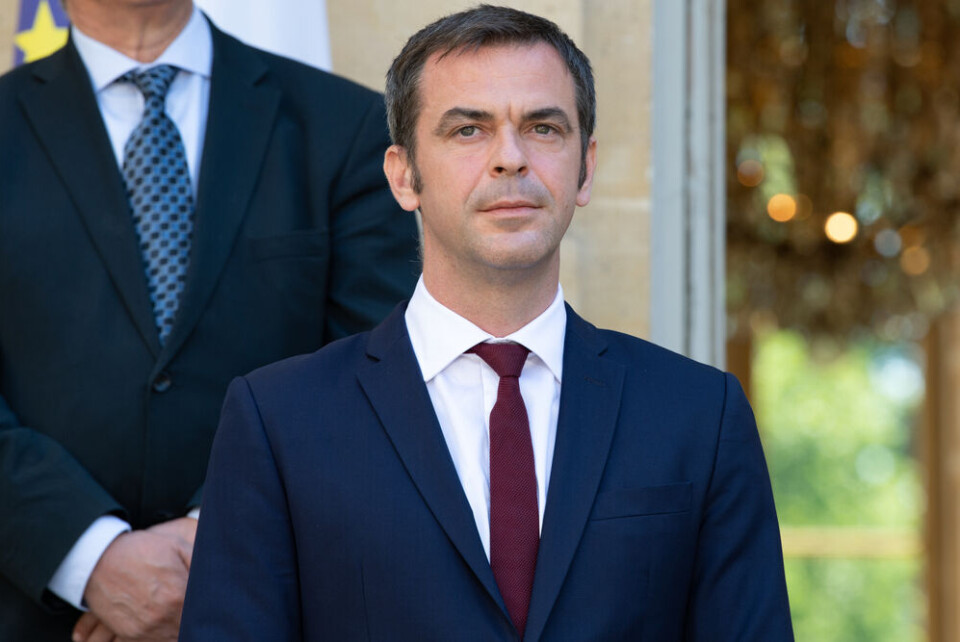-
New Paris-Jersey direct flight to launch this summer
Loganair route forms part of Channel Island’s tourism boost plan
-
Death of right-wing protester in Lyon sparks fears of further political violence
Quentin D, 23, died after reportedly being ambushed by far-left activists near site of political conference
-
Red flood alerts continue in south-west - and more heavy rain expected
Garonne river is particularly affected. French weekly weather forecast February 16 - 20
'Preferendum': a buzz word, not a real concept, says French law expert
The word was used by the government’s spokesperson on television - but a law professor says it is highly unlikely to materialise

A new political buzzword was used in France recently: ‘preferendum’. We look at what it could mean and could it happen? A law professor told The Connexion it is very unlikely…
What does the word mean?
The French government’s official spokesperson, Olivier Véran, used the word during a televised interview on BFMTV. However, he did not elaborate on what it meant.
The word is being seen as a portmanteau either of the words ‘referendum’ and ‘prefer’ or ‘plural’, and refers to a referendum with more than one question or questions with multiple possible answers. However, both concepts are unheard of in French politics.
No legal precedent
Professor Dominique Rousseau, a professor of constitutional law at the Panthéon-Sorbonne university, told The Connexion that the word is entirely made up, and that its two possible meanings are currently illegal under French law.
He said: “It’s fairy dust, a legal UFO, it does not exist.”
Multiple choice?
“We can speculate that it means multiple questions asked during a single referendum,” Pr Rousseau said. “There is only one instance of a referendum with more than one question in French history, and it was back in 1969 – but it required a single answer for both questions.”
Article 11 of the Constitution states that a referendum must offer a simple ‘yes’ or ‘no’ vote on a bill of law.
This means that any form of ‘preferendum’ - with more than one question - is impossible within current law, as it does not allow for a referendum to require multiple answers. It is also impossible for a referendum to offer voters multiple choice answers.
Survey not legally binding
Similarly, a ‘preferendum’ - as in ‘what do you prefer?’ - would be akin to a survey, and therefore serve no legal purpose.
In this case, the goal may also be to present a survey as an officially binding vote, by calling it a word resembling ‘referendum’. However, the results of such a survey could not be legally binding.
Popularity contest
In this specific case, Mr Véran was suggesting that a single-question referendum is actually more of a popularity contest for the president who initiates it, rather than actual genuine public feedback on a given question.
He said that, with a ‘preferendum’, “people can unleash their feelings on one point, and then give actual feedback on the rest”.
Professor Rousseau confirmed to The Connexion that previous referendums in France have often appeared to be more of a reflection of a president's popularity, than the population's approval of a given issue.
Yet, he does believe that a referendum on multiple laws at the same time could ‘blur the lines’ for the public, and help overcome this ‘popularity contest’ aspect of a referendum.
“Imagine if the president asked the people in a single referendum if they want abortion rights to be added to the Constitution, and then about whether they want to allow more migrants into the country,” he said.
“The first answer would likely be ‘yes’, but the second answer would be more unpredictable, compared to if you asked it in a vacuum.”
Pr Rousseau is certain that there is no provision in the Constitution for a ‘preferendum’ to be instituted. The Constitution would have to be amended first to allow it, he said.
It is unclear if and how a ‘preferendum’ will materialise in the future. No government official, except Mr Véran, has ever used the word.
“It is far-fetched,” Pr Rousseau said. “But it could [theoretically] be used for anything from immigration, to retirement age or women’s rights.”
Read more
Macron: Limiting president to two consecutive mandates is ‘stupidity’
























